Whimsical Magic
Marking the end of Pride Month, Whimsical Magic awakened queer spirits from the past. The event was held in a venue now known as Ella Funt, known in the 50s and 60s as Club 82, where performers were men dressed as women, and wait staff were women dressed as men.
A crowd of 60 guests entered through a nondescript door, guarded by a bouncer in drag, passed down several flights of stairs, and into a markedly different world: an open concrete pit, an above-ground swimming pool, a disco ball, a rope swing, seats from a passenger jet, and a model in red emerging from behind plastic sheeting - all vibrating with music and lit in purples and blues.
Part fashion show and part theater, Whimsical Magic was a 30-minute show produced by Logic(s) designer-in-residence Bones Jones. With no clear start or end, Whimsical Magic was a series of vignettes that included an impromptu marshmallow roast with a blow torch. Center-stage was a suggestion at best. Models emerged from behind plastic sheets and subverted expectations by dipping in and out of the crowd. Stanchions separating the crowd from the performance were taken down and refashioned into garments. Nearly a dozen performers brought the show to life. Here are their recollections.
Alexey Kim
DESIGNER
Bones Jones
PHOTOSHOOT
MODELS
Christine Shepard
Marie Ndao
Karaj Pettis
WHIMSICAL MAGIC
Photos by Juan Manuel Brest
CREATOR
Bones Jones
PERFORMERS
Beau Jangles
Bones Jones
Christine Shepard
Grace Brown
Jay (Mel) Parell
Mimi Tao
Viper
PRODUCERS
Maurice Ivy
Michael Falco
Reginald Robson
SOUND, LIGHTS & VIDEO
Maurice Ivy
HOSPITALITY
Ayce (Eric) Graham
Darria Conyer
Victor Riffel as Svetlana Stoli
Wen-Jay Ying
HAIR & MAKEUP
Adam Leo Ross
Arthur Gareev
Felix Baez
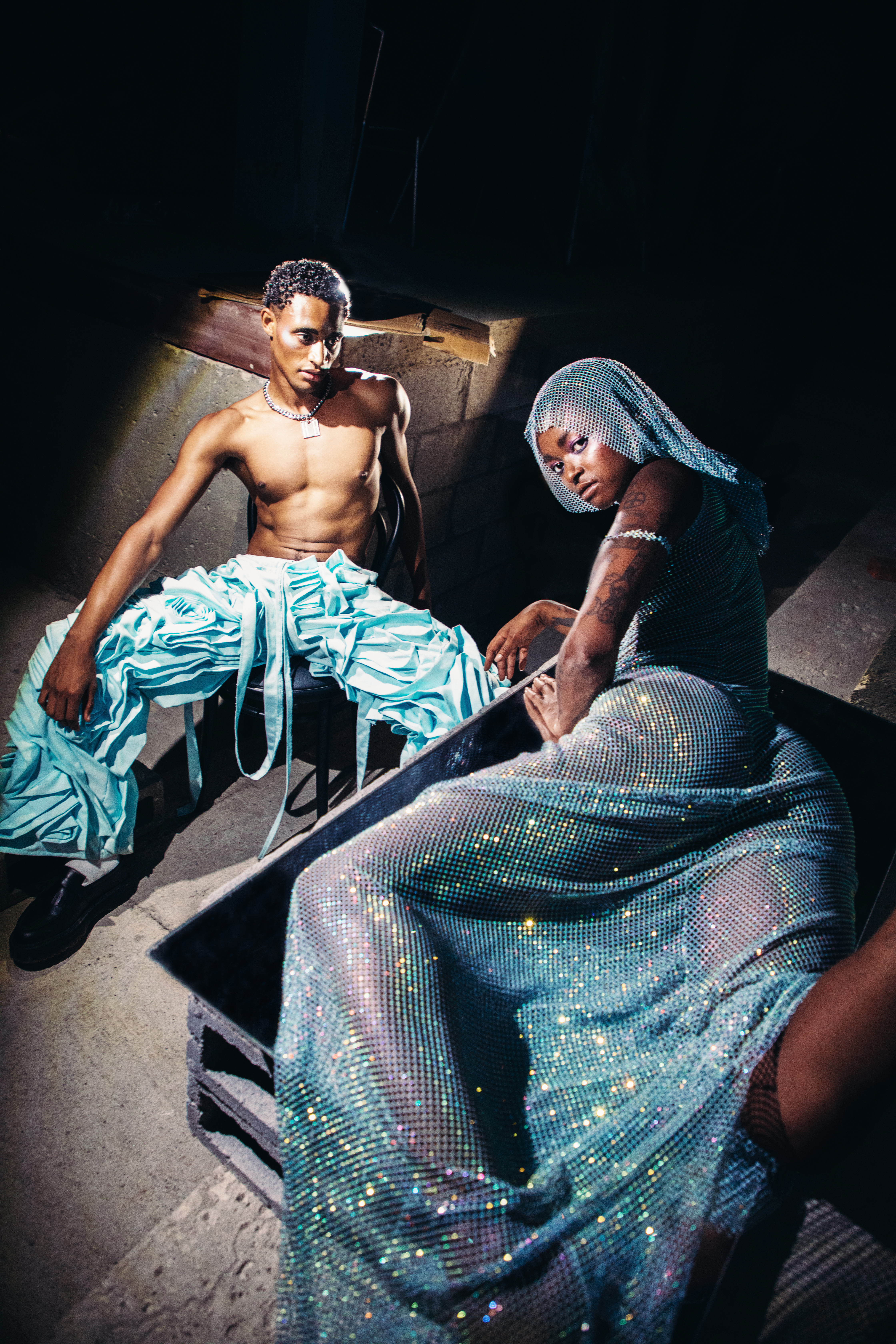
“Bones told us his story, but gave us the freedom to interpret the scenes within his story. So I honestly connected more with myself. It felt personal, the whole show was personal. Bones was bringing people into his world — so I tapped into his world, but also into my world. We just found the frequency.”
Jay Parel “Mell” is a queer model and performer living in New York City who is continuously working and growing within the art space. He was the cover model of Logic(s) 19.
“I had like two hours to wrap my head around things. The show just kept building. At some point I had kicked off my shoes and was walking around and thinking, I shouldn’t be barefoot right now. But I had to be barefoot. Meanwhile, I’m surrounded by all these working models. I’m like a junior model. I’m a performer and photogenic and know my body. But I felt like I had to bring it and just let go and get lost in it.”
Christine Shepard, who models in this issue, played the “cat” in Whimsical Magic and was out of the country for the sole rehearsal. She is a New York City-based actress.
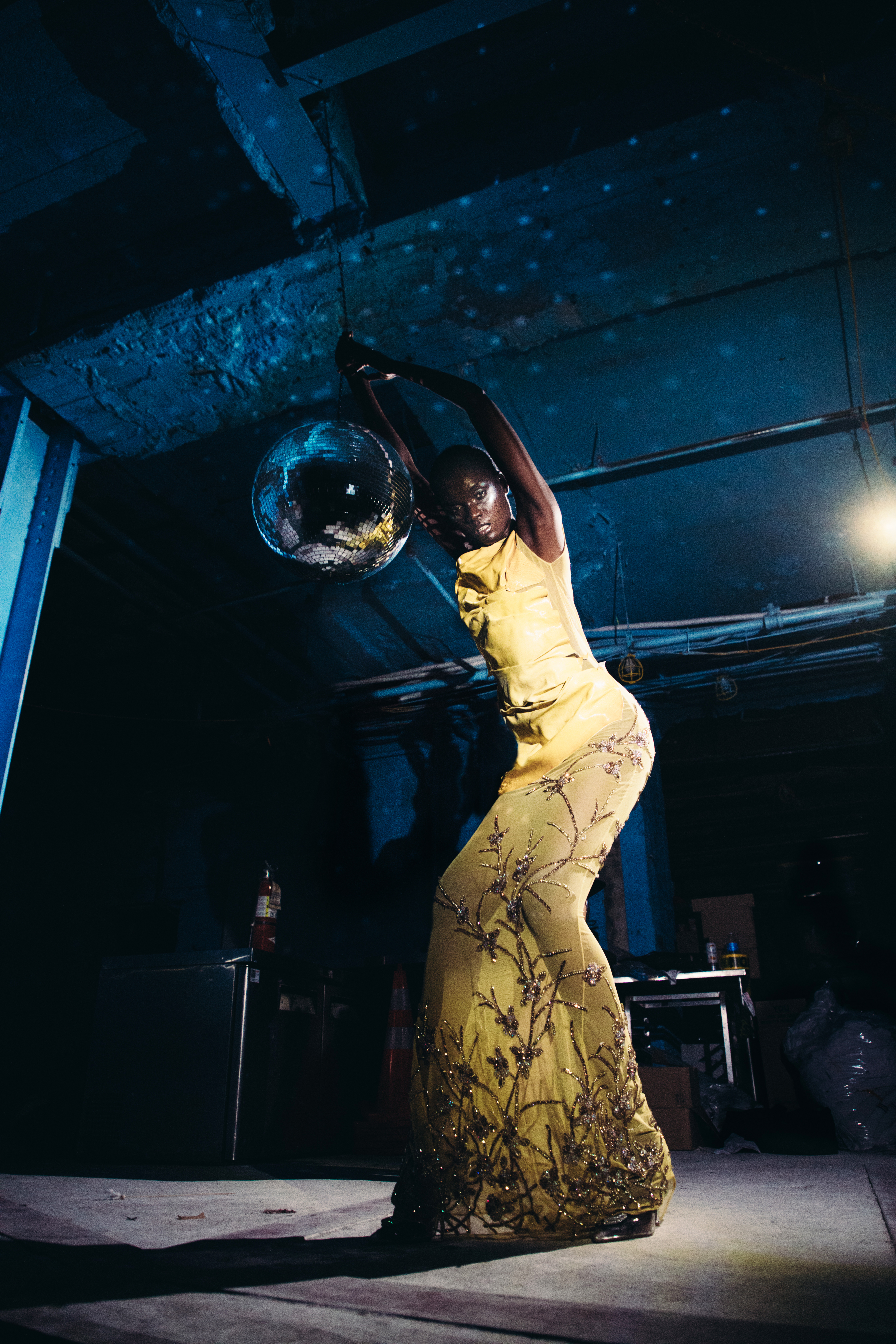
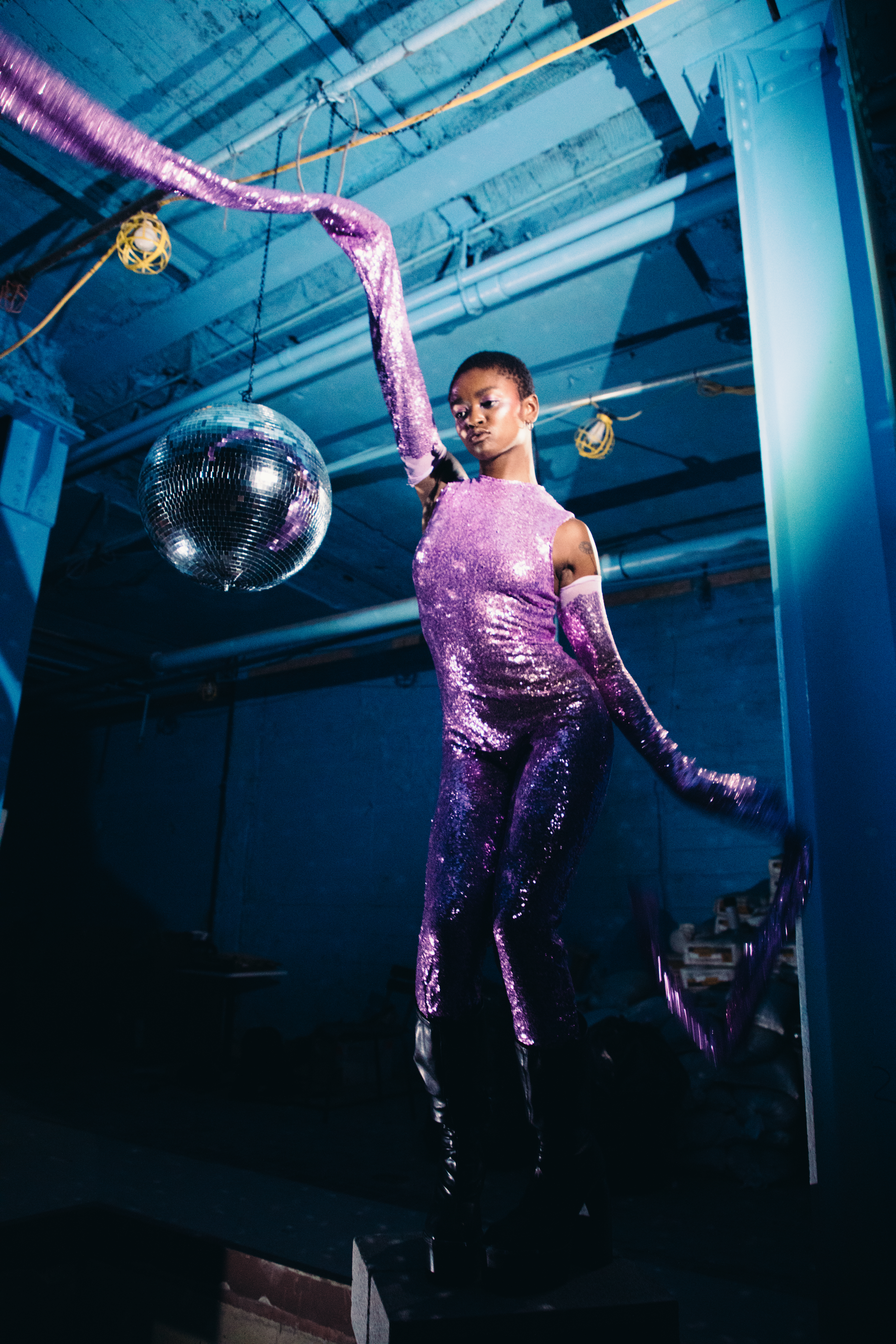
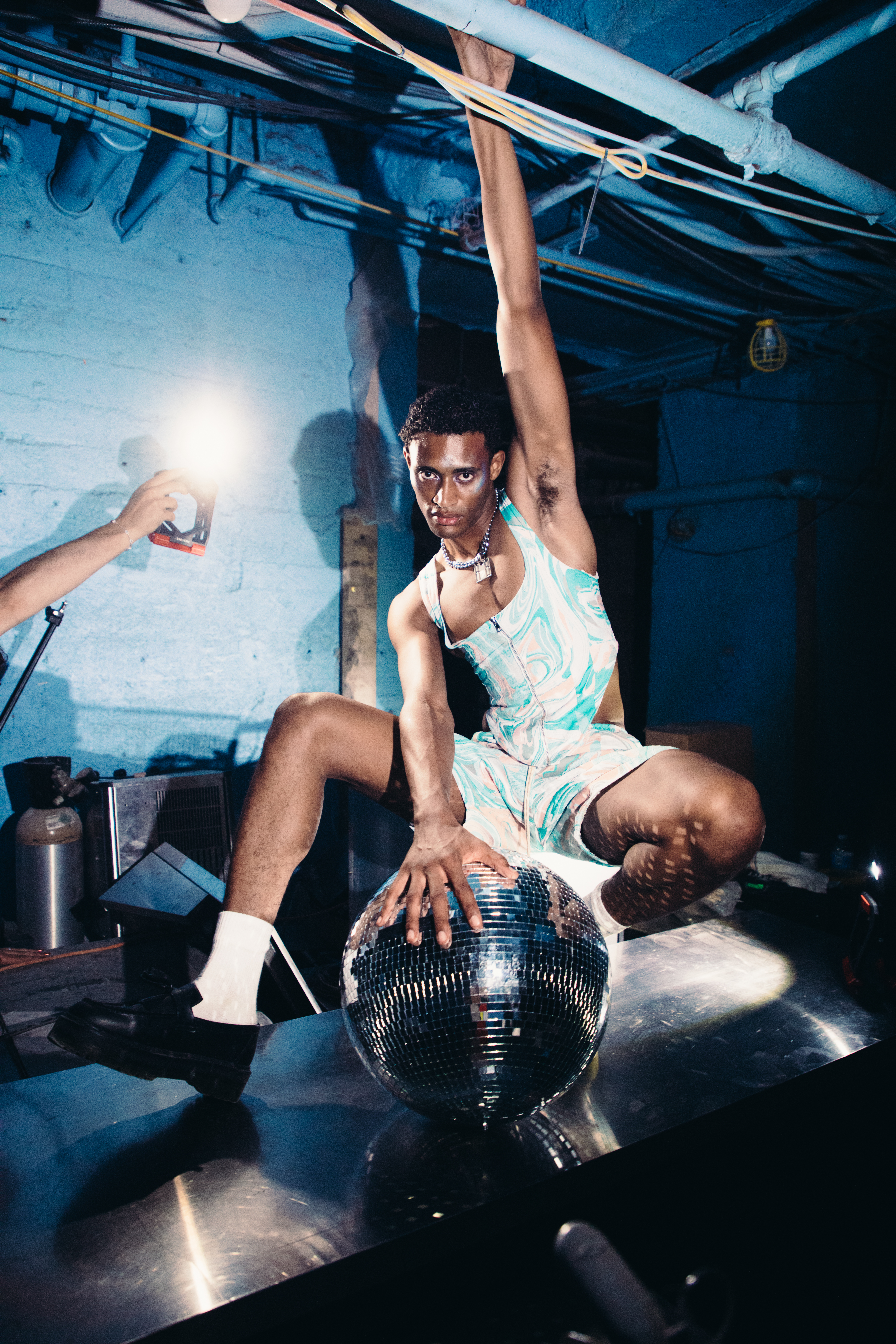
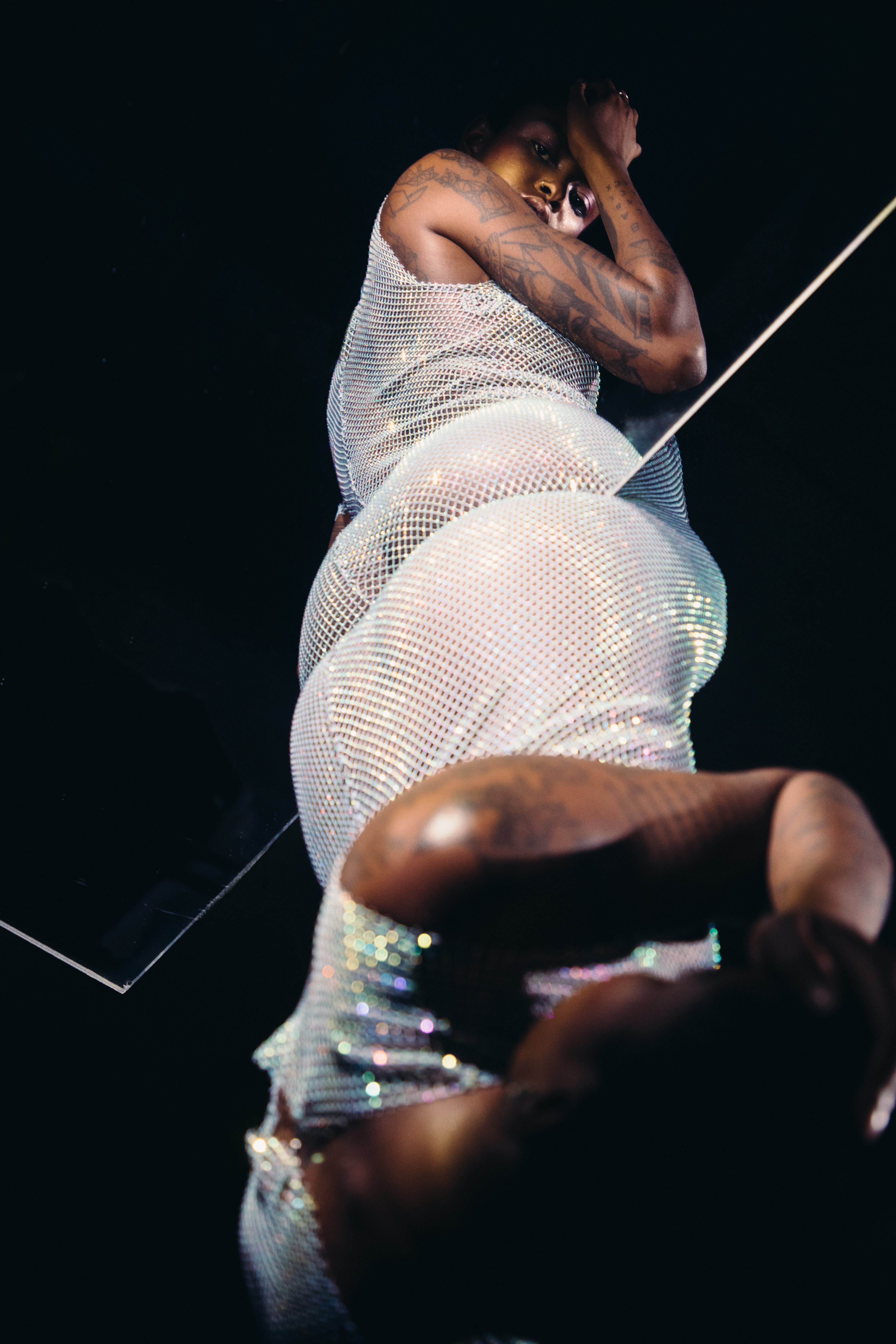
“Something that stood out to me was the use of water as a symbol of life and the beginning of something. Throughout the show I had a thought in my mind that the scenes that were created — in my interpretation — felt like the models were angels cultivating & awaiting the birth of either the first human or a God. I also really loved Bones’ water scene. It truly felt like I was witnessing the birth of something special.”
Beau Jangles played various roles in the show, and is a model and entertainer based in New York City.
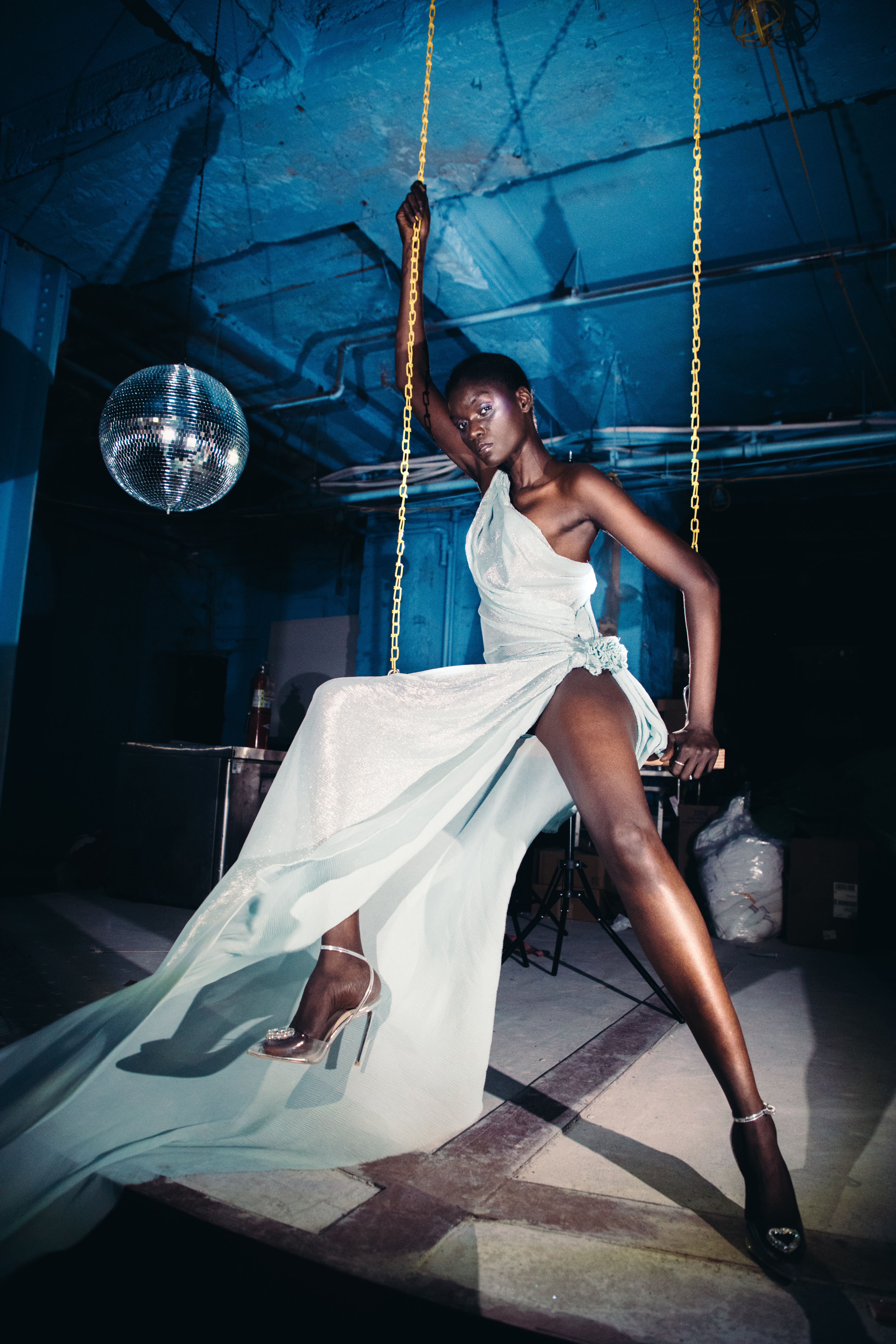
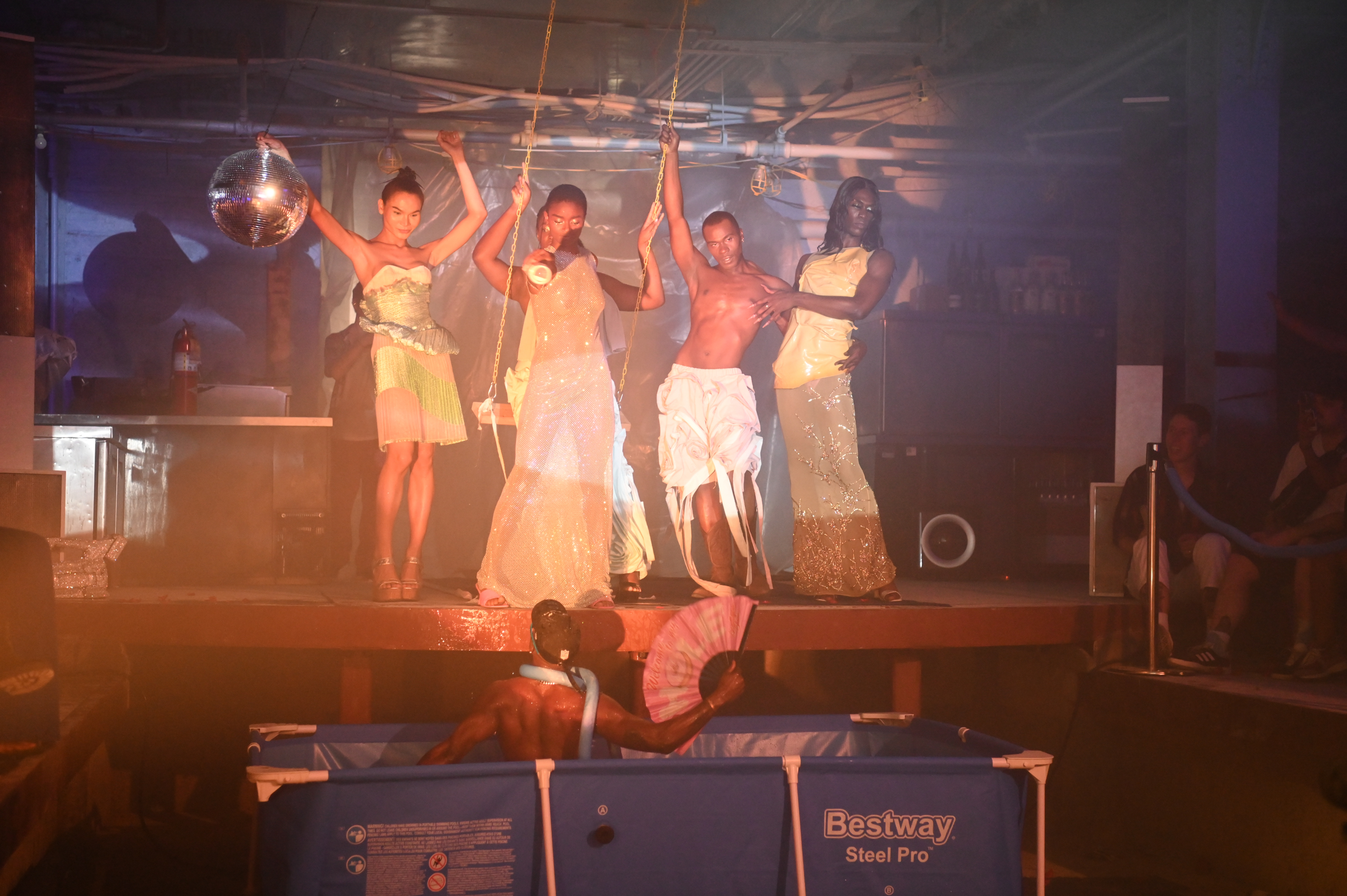
Faggotry
This interview is a reflection between collaborators who vibe on life, failure, depression, drug use, death, and queer and trans liberation. It’s also a reflection on Whimsical Magic, a show that was produced in just two weeks, and the performers who made it possible.
Work is best when it is personal, connected and joyful.
BONES: Between the span of issue 19, “supa dupa skies,” and our show Whimsical Magic I realized there had been an evolution in my life. [I] realized that this moment was bigger than just making a show or fashion. I love the last photoshoot — love the photos, love Courtney [Harvier]— there was a lot of joy in making what we made, but something was still missing in the final product. It wasn’t fully what I [had] in my mind — it hadn’t fully resonated. In the first issue I was brick-laying for everything else that was coming. Once I held the physical object, the magazine, and saw the pieces my work stood alongside, it moved me toward something different. My work is never as good if I don’t start by taking a deep breath before I jump. For Whimsical Magic, for this issue, there is so much I hadn’t ever done before.
I was thinking of fashion as technology. I had to process the look of things, how things lay, how things move, how the beads will stretch the fabric. When the gown is longer than what you cut it to be, because the weight of glass beads pulls it down. How the stitches are placed in certain parts, how the dress is attached to the leather by only a few strands.
MICHAEL: What you created looks and feels so much like this summer. It shines, it’s underground but not hidden. Where does the seed of the idea of these looks, of this show, begin?
BONES: When I was ten. [laughter] From childhood up until that week of the show, with me breaking up with my boyfriend. It was all that. That thirty minutes was at least twenty-five years worth of information. Which is why it felt so real and like it had been rehearsed for so long.1 So, yes, Whimsical Magic started a long time ago, but I just jumped off from the most recent thing that happened to me and worked backwards—figuring out how to make the breakup connect to other places in my life of faggotry, and how to build a show off of faggotry.
MICHAEL: Say more about that.
BONES: I’m taking back the word faggot. I’m taking it back because my whole life, I was told not be a faggot—and then of course we started hating that word.
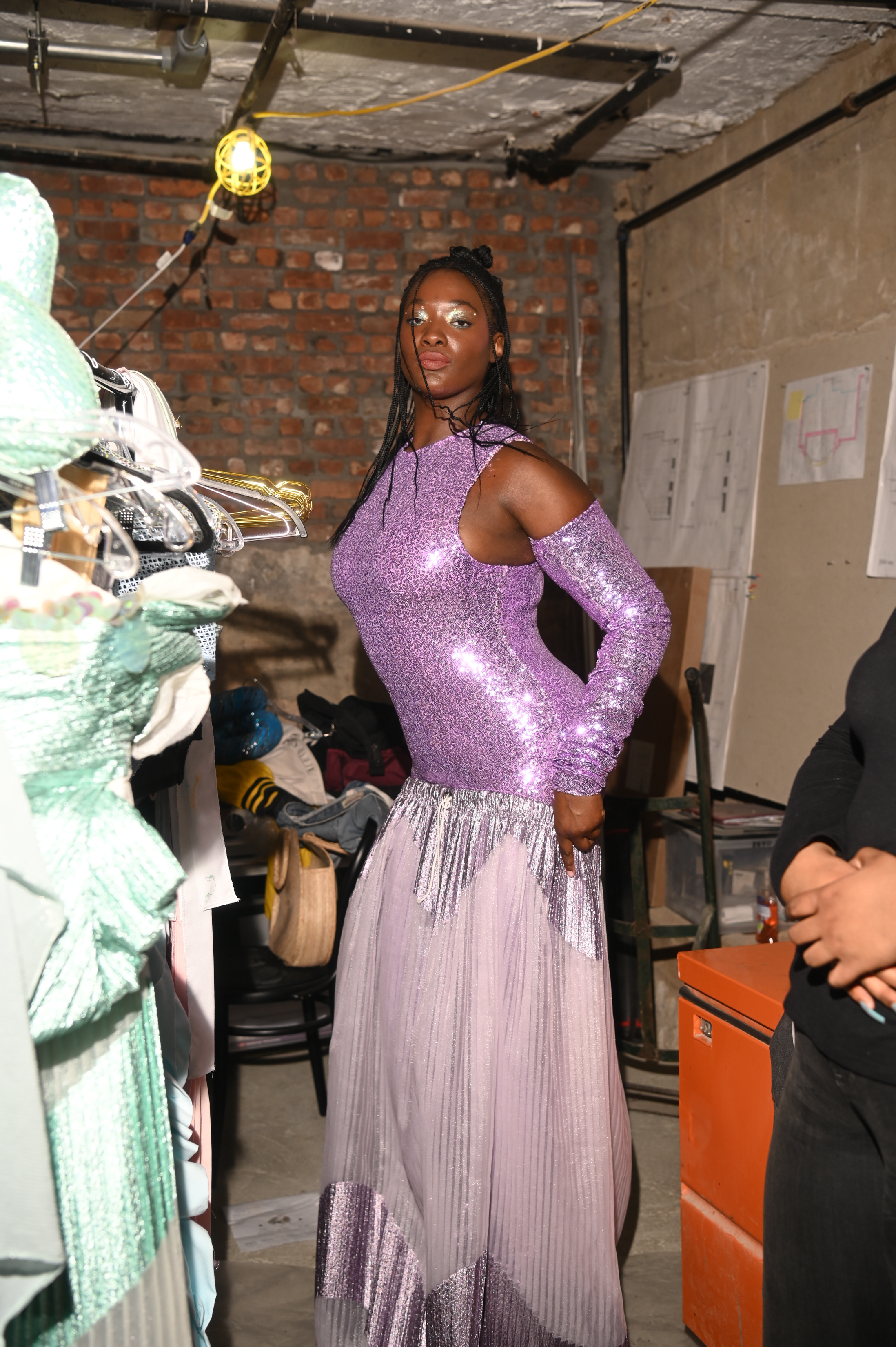
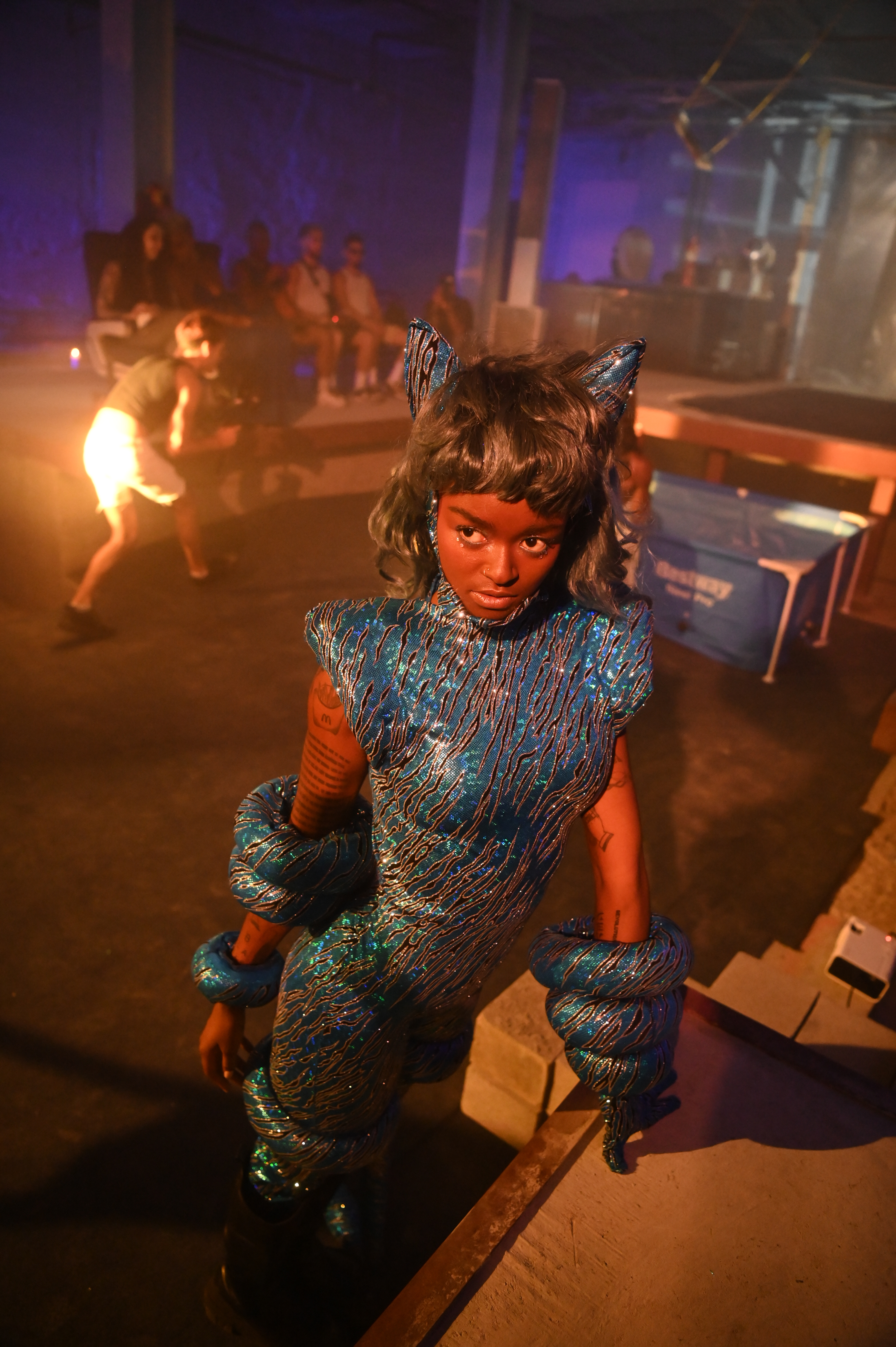
MICHAEL: Because we have been taught to hate ourselves. We grew up in this world so deeply misaligned with who we are, the weight of that unbelonging can crush us. Then we find our people, we become ourselves with others, but things stay smudgey.
BONES: Whatever you need to do to make shit make sense for you— to make sense of where we came from and where we are. That show was built on taking the most recent faggot moment and figuring out how my life has been built from faggot moments.
MICHAEL: It’s exciting to express ourselves fully and fearlessly and through that, I think we can find the resonance you talked about, with ourselves and those outside us. The show itself came together so fast, but it embodies some really meticulous work and reminds me of the last issue’s theme: “move slow and heal things.” Often working quickly is too high a cost to pay, it damages your relationships, yourself, the world you want to build.
BONES: Everybody thinks that they can just microwave everything—and you can. You can take shit out of the freezer and put it right in the microwave, go ahead, be my guest. But I’m going to sit here, I’m going to marinate my chicken, I’m going to cut my veggies myself, and I’m going to put this in the oven. I’m going to wait. And just watch the difference in the taste. My food is going to be put on some fine china, you’re not going to taste any residue from cardboard. When you microwave your work, you’re like, “What the fuck am I actually eating?” Then you wonder “Fuck, why did I do that?” I’ve been there and I’ve done that. You can’t change the past, you just learn and try to work to the moment.
MICHAEL: Seriously. We’ve talked about my serious depression and our relationship to that. When I’m in my worst state, time collaps- es. I put so much stock in a single idea, and if or when it falls apart, I convince myself I’ve completely destroyed my future, I completely undid the past, wiped everything out. I’m just stuck in the present, in unending pain. Working fast makes that feeling more pronounced.
BONES: My depression stopped when my delusions began. I was very depressed, would cycle through moments of “fuck, fuck, fuck, fuck.” But then I started to walk down the street and have fake conversations with myself. I still do. I will be with my headphones in, there’s no music playing, and people are like, “Why are you talking to yourself?” I’m like, “I’m practicing my future right now [laughter] — can you get out? I’m giving an Oscar winning speech right now, can you get out of here? I’m pumping down the longest runway, did you see it? I’m on the biggest stage right now, do you not see this?”
MICHAEL: This is why we’re so connected. I’m constantly in dialogue with myself and with other people in my head — so many scenarios, fake and real. We were talking about your friend Simon who just passed and your grandma who’s dying. The reason I really don’t worry about death is because of that monologue in my head. I’m talking to my husband. I’m talking to my friends. I’m talking to you. To my dead grandma. We carry others with us and that’s why relationships and connection matter, whatever we give is what we leave behind.
BONES: I hate saying this, but my grandma’s already been dead to me. The attachment to the physical version of my grandmother has already passed away and transitioned. But she’s here. I’ve been hesitant to go and see her one last time because I just watched my friend die. For three months, I was going to the hospital and seeing the change in my Simon’s physical appearance. My last thoughts of him and my last picture of him is how I saw him.
MICHAEL: Right, that’s not all of him.
BONES: Exactly. In the greater scheme of things, because of how he was in my life, I know all the other parts of his existence that I hold, but the last interaction and picture that I have is the way that he’s stuck right now.
MICHAEL: I’m going through the same thing with my other grandma. She’s ninety-six and wasting away. Her mind is still there, so there’s still energy and her presence. But she’s at that jumping off point and ready to leap. I try to hold her multitudes as much as I can, because she wants to be remembered in a certain way too.
BONES: Yes. That’s how I feel about Simon, too. Simon was such a creative force. His design work, his ideas, his presence. It’s gone, but it’s not. There’s his sketches, his vision for a fashion line, the care and craft he brought to the work. I carry that. This took a turn. [laughter] Where did we start?
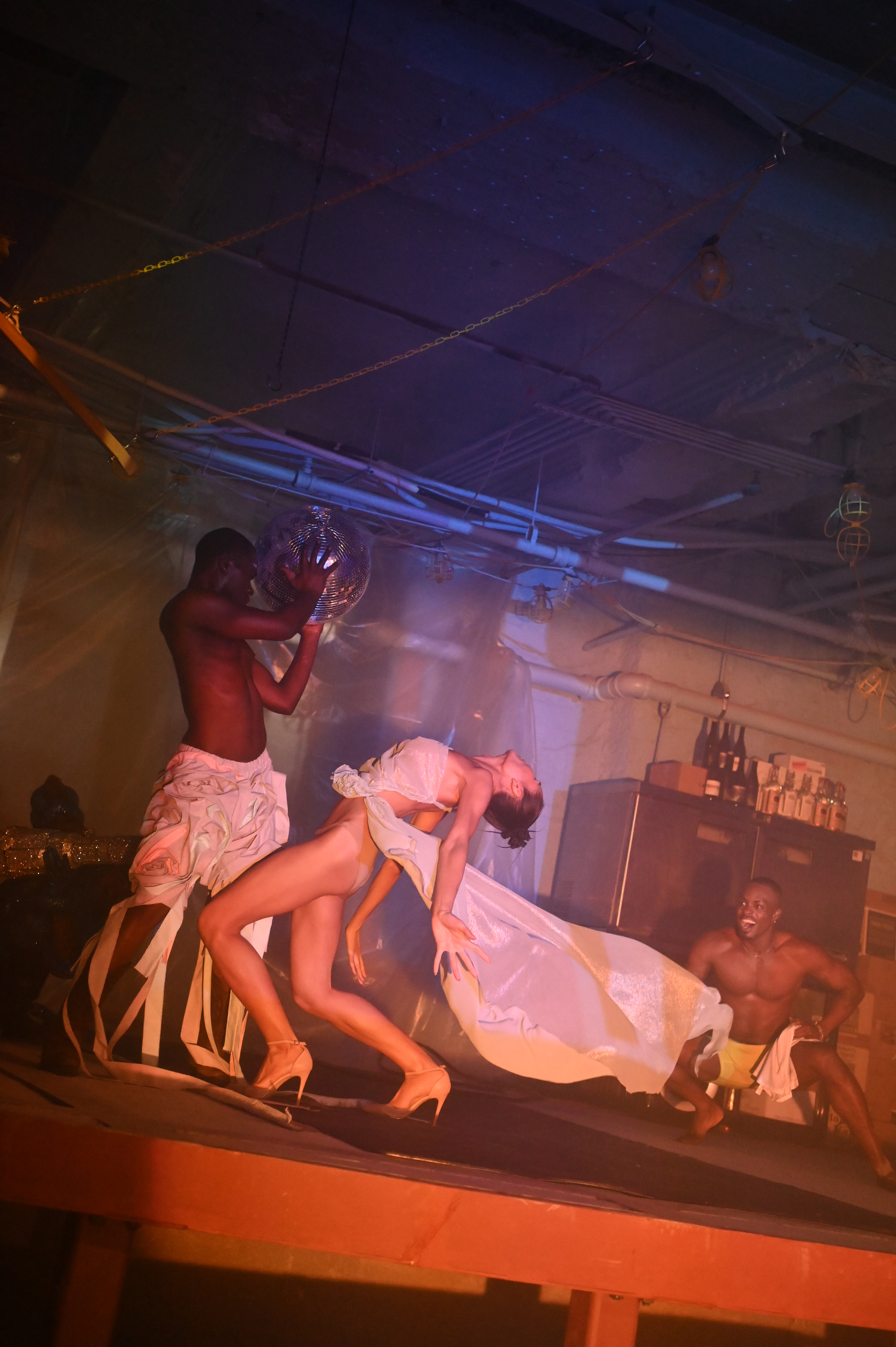
MICHAEL: We were beginning to talk about contentment, it just naturally turned to death. Capitalism constantly makes us want things we don’t have: people, places, stuff, prestige. But when you can hold on to what you got, and work and build with that, whatever you are lucky to have—life becomes more interesting and joyful and livable.
BONES: Think about Destiny’s Child. Bitches live for Michelle. Bitches will never say Michelle’s trying to be Beyonce because she’s never tried to be Beyonce. She’s Michelle. Like I don’t want to be Beyonce. I want to be Michelle. I’m Michelle. My friends are a bunch of Michelles, but they’re also Beyonce.
MICHAEL: That’s a perfect segue back to the show. So much of the Bones x Logic(s) collab is about the people you bring into the work, how you bring them in, and what you coax out of them. It felt like you were just creating space for them to express themselves.
BONES: One hundred percent. I always say, if I ever have a cult following, they’re going to be [called] the Skins. I am Bones and that’s what I bring to the table. When I give the platform for performances, or if I’m creating a thing, you bring the skin, I’ve got the bones.
MICHAEL: I never thought of the meaning of the name Bones like that—bones don’t work without something on them, without whatever others bring. At the start of the show, you were toasting marshmallows. Why start there?
BONES: Toasting the marshmallows in the show was about process. How does something get made? That was something I wanted to explore. I wasn’t sure if it was me actually making clothes or making some- thing quick on the spot, but I knew I wanted to physicalize a process. Technology is process. It’s building on things. And how do you tear it down, as well? How do you remove your footprint off of things after you’re finished with them, if they’re no longer of use to the world?
MICHAEL: That’s what I think when I think of “queering” things and places. The straight world tries to bend us to their will, but queer people can see past how things are and instead see how they can be — radically different configurations for ourselves, our lives. You see it in queer performance, our joy in creation and togetherness—when we untether ourselves from dominant norms.
BONES: With a lot of these systems, they were things that were built in a place of ignorance, lack of knowledge, fear. With something as simple as the marshmallow, I wanted people to have a place to start from. If the marshmallow represents an institution, what does it mean to set it ablaze, to turn it golden brown? It tastes better by the way. [laughter] But the vibe should have also felt like being in the club—just moments piled on moments. It’s a place where people go to find love and it’s a place where people go to find resolution to so many different things.
MICHAEL: Right. I disappear into me at the club, too.
BONES: The club allows you to do that because everybody’s freer.
MICHAEL: It’s a place where you can feel yourself and feel others, put judgment aside and just be, if you’re doing it right.
BONES: That’s a place where I flourish because I feel like I’m testing waters. I feel the most sober when I’m fucked up sometimes.
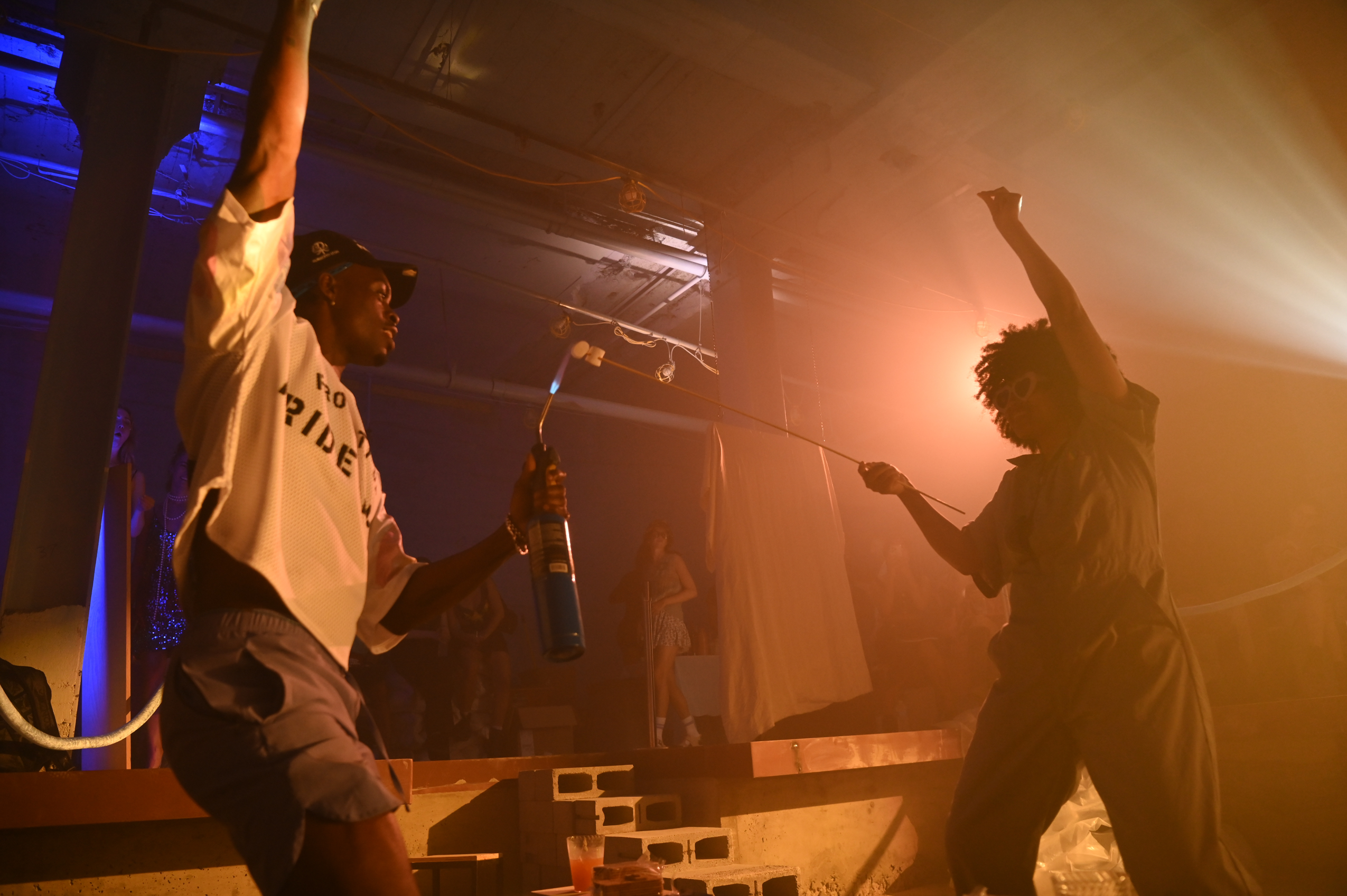
MICHAEL: Yes. When I do shrooms or when I do molly2 in the club or acid in nature—sometimes you can close your eyes and just find this deep clarity—when the five-hundred thoughts in your head come closer to one. Sometimes you disappear altogether—disgust, self-judgment, gone. It’s somehow the same and so different from my worst depressive states, but in this state I’m suddenly able to see beyond myself, too. You feel the immensity of life. A friend of mine told me that LSD is a drug for becoming and I feel that. My mind becomes quieter, and in that quiet I see and feel and hear something else. It’s so creative and so stimulative. Growing up queer, living in a constant state of trauma and fear and self-hatred—my mind is not quiet, it’s never fucking quiet, it’s so fucking loud in here.
BONES: So loud! And throw sex and music in there, and what do you got?
MICHAEL: Yes! Music is critical. It’s why I love house and techno, because it moves in every direction. It’s deconstruction and creation. Familiar beats cut through unfamiliar sounds, pulling you toward the distant past, toward yesterday, toward the future. It’s a complete disruption of time — you are everywhere and nowhere. Then you’ve got lights breaking through dark, people fucking on the dance floor. Four hours pass by and you’re at the limits of your body and doing everything to just keep moving, to find the rhythm and beat, waiting for the drop, even if it takes an hour to come. It just keeps building — it’s like being edged, but without the desire to climax. In that chaos is clarity. Creating that space requires technique and process as you said earlier. It’s wild.
BONES: That’s how Whimsical Magic came together, that’s the feeling I’m chasing. That’s why I wanted to do drugs in the show.
MICHAEL: You mean snorting K at the end of the show? That’s the only thing I shot down. [laughs] I was so worried about risk and perception.
BONES: It’s okay. I still smoked weed.
MICHAEL: That didn’t worry me.
BONES: But ‘no’ is hard. [That no is] part of the nos we hear all the time. Why shouldn’t I have done it? I shouldn’t do drugs, I shouldn’t suck dick—and sucking dick, it makes me feel good.
MICHAEL: Yes, yes. There’s the stigma and the boundaries that haunt us—
BONES: If you try sucking dick, maybe it will make you feel good. These things being so stigmatized is why Whimsical Magic happened. Being in the club, doing drugs. Faggotry! I was able to create the show in that same thought pattern. It should feel like a trip, it should really feel like a journey of whys and why nots. I get so much joy looking at the video of the show because you really see a pool, and a cat, and a marshmallow, and I was sleeping under plastic. And then there’s a girl in a gown blowing in the wind, and then there’s me swinging in a wig. You see all these things and it’s like, “Why?”
MICHAEL: Faggotry! There’s something meditative in performance and in the club. These are things you can’t fully capture and not just because phones are usually banned. The experiences can’t be created online or on Instagram, they have to be experienced. It’s a state, a place where you see beyond yourself, and you can find it with or without drugs. Something beyond the inhibitions and ideas forced upon us, that we’ve learned to copy to survive.
BONES: Because we were told that who we are is dangerous and that’s how we act. The reason I archived all my Instagram but two images is that I looked at it, and it felt like a collection of things that don’t matter as much to me now, that aren’t me today. That’s my focus—not yesterday, not tomorrow. The connection we felt in the room, that’s real. A lot of what’s online doesn’t start with us. Maybe it experiments on us, but it doesn’t start with us. What we build together, that’s the place I’m trying to start from.
MICHAEL: Social media promises connection, but it can be so disconnecting. All I have left is LinkedIn, and sometimes I wonder why I even bother with that. But you’re right, it’s so much more liberatory to live in the present. When we blur boundaries around ourselves, our gender, our openness to others—we create new possibilities in real time, in the physical world that can envelop and elevate us. That’s why we need imagination and collaboration—to be fearless and to spend less time filtering ourselves through machines.
BONES: Yes! As soon as you jump and you realize you did it, it’s like, “Oh, shit, bitch. I got two broken ankles, but I’m here and I did it.” Half the battle is recognizing that we’re going to get scars and bruises. I look back at my body sometimes and I’m just like, “Wow, I’ve experienced life.”
…Even if we only had one and a half rehearsals with the performers.
Ed. note: Logic(s) is not endorsing drug use. Bones and Michael had a much longer conversation about safety and risk, agreeing that they focus on use when the set is right, both setting and mindset. Because of the collective and unending trauma queer and trans people experience, many of us have turned to substances to cope, in ways that have helped and harmed. Unfortunately, research on the benefits and safe uses of drugs has been greatly curtailed because of federal restrictions on such research. We recommend getting past the SEO-optimized information that suffocates the internet and reduces sex and drugs to stigma, as there is good information about how certain drugs work and their effects.